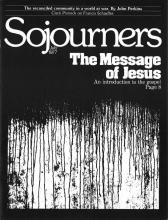Africa in the 1970s was in the midst of a great world conflict--a conflict between the black peoples and the white peoples of the earth, between the developed West and the Third World. The church was central to this conflict. People acting in the name of Christianity helped bring it about. Yet only the gospel of Jesus Christ can provide an alternative to violence, hatred, suffering, and chaos.
For the last several centuries, the gospel has been under the stewardship of the West, under the stewardship of basically white people and people with power. The problem has been that our Western way of presenting the gospel is not radical enough. We have helped produce crisis by not really being the salt or preservative of the earth.
The reports I once heard from missionaries were that Africa was becoming a Christian continent. But then Maoism and communism spread in their appeal. Why? Because they offered a more comprehensive approach, especially to social, educational, and economic problems. The gospel we've preached has not been radical enough to deal with the needs of people.
Christians in the West have given way to culture and tradition. We have fit the gospel into our culture, and to do this we have had to divide the gospel up. The same ability to divide, conquer, and dichotomize that has made the West powerful and has given us the division of labor and efficiency was applied to our preaching of the gospel.
This has meant efficiency in the short run. We could turn the gospel into a verbal jungle or a catchy phrase; we could move quickly through the world with our tapes and radio stations and promotional evangelistic strategies. The result has been that now many Americans are "born again," and that Africa has been "Christianized." But the result has also been the skipping over of deep human need.
We are moving through the world too fast with a gospel that is too easy. We have been over-efficient and ineffective.
Read the Full Article

